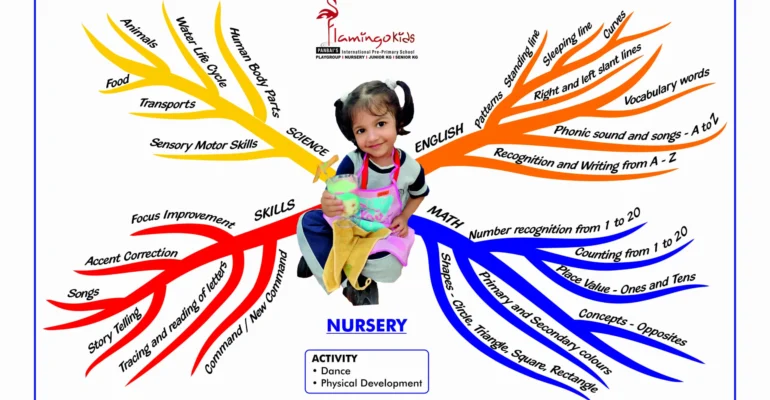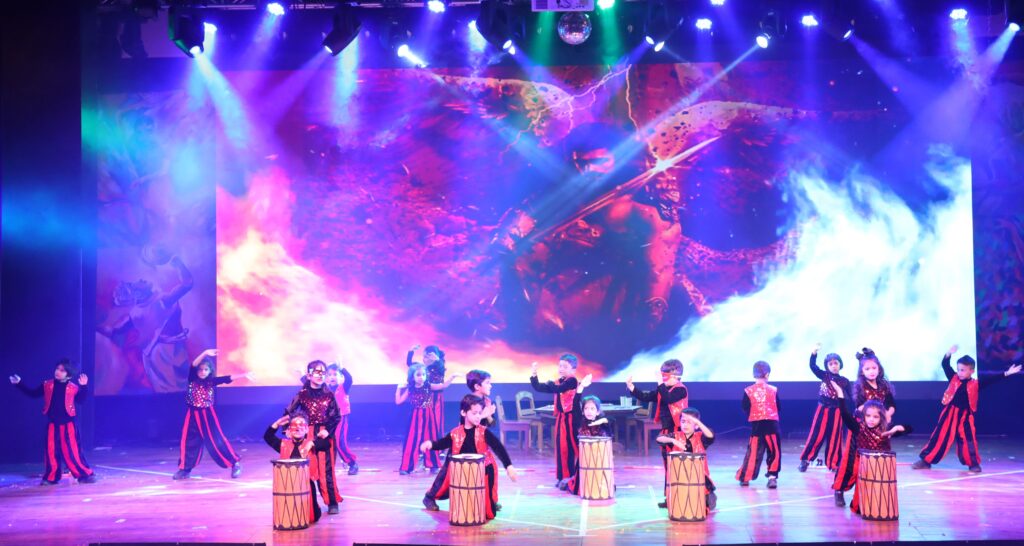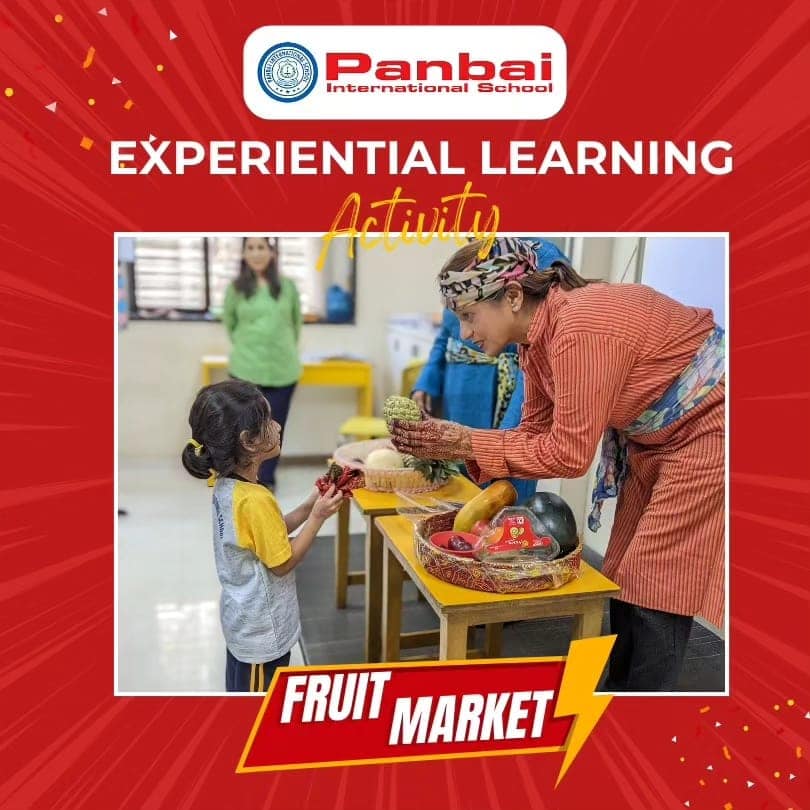Choosing a Preschool for your Child? Discover essential Tips
March 11, 2024 2024-08-17 7:02Choosing a Preschool for your Child? Discover essential Tips


Choosing a Preschool for your Child? Discover essential Tips
Preschool education forms the cornerstone of a child’s early development. For parents, selecting the right preschool entails careful consideration of various factors, ensuring a nurturing environment that fosters growth and learning. In the bustling metropolis of Mumbai, where options abound, the task becomes both crucial and challenging. This article aims to guide parents through the process of selecting a preschool, with a particular emphasis on the play way method of teaching.
Introduction to Preschool selection
Choosing a preschool marks the beginning of your child’s educational journey. It’s a decision that lays the foundation for their future academic and social development. While the options may seem overwhelming, understanding your priorities and values can simplify the selection process.
The early years of a child’s life are a critical period of rapid brain development and growth. Research suggests that up to 90% of a child’s brain architecture is formed by the age of 5. During this crucial window of opportunity, children’s brains are highly receptive to new experiences, learning, and stimulation.
Early childhood experiences, interactions, and environmental influences play a pivotal role in shaping neural connections and cognitive abilities. Activities such as playing, exploring, and interacting with caregivers contribute to the development of essential skills, including language acquisition, problem-solving, and emotional regulation.
As children engage in various experiences and interactions, neural pathways are strengthened and consolidated, laying the foundation for future learning and development. Quality early childhood education programmes that offer stimulating environments, supportive relationships, and enriching experiences can optimise children’s brain development during this critical period.
The play way method is widely regarded as the best form of preschool education due to its emphasis on active learning through play and exploration. This approach recognises that young children learn best when they are engaged, curious, and actively involved in their learning experiences.
Here’s why the play way method stands out:
- Promotes Active Engagement: Children learn by doing. The play way method encourages hands-on exploration, experimentation, and discovery, allowing children to actively engage with their environment and learn through first-hand experiences.
- Fosters Creativity and Imagination: Play is inherently creative and imaginative. In a play-based environment, children are free to express themselves, problem-solve, and think outside the box. They engage in imaginative play scenarios, role-playing, and storytelling, which stimulate their creativity and innovation.
- Supports Social and Emotional Development: Play is a natural avenue for social interaction and emotional expression. Through play, children learn essential social skills such as cooperation, sharing, negotiation, and conflict resolution. They develop empathy, self-regulation, and resilience as they navigate social dynamics and interpersonal relationships.
- Encourages Exploration and Discovery: Play-based learning environments are rich in opportunities for exploration and discovery. Children explore various materials, textures, and sensory experiences, fostering their curiosity and intrinsic motivation to learn. They develop a sense of wonder and curiosity about the world around them, laying the foundation for lifelong learning.
- Promotes Holistic Development: The play way method addresses the holistic development of children, encompassing cognitive, physical, social, emotional, and creative domains. It recognises that learning is not compartmentalised but interconnected, and children thrive when they are supported in all areas of development.
In summary, the play way method is the best form of preschool education because it honours children’s natural inclination to play, learn, and grow. By providing a stimulating and supportive environment where play is central to learning, the play way method nurtures children’s innate curiosity, creativity, and love for learning, setting them on a path towards academic success and lifelong well-being.
What to look for in a Preschool
The proximity of the preschool to your home or workplace is a practical consideration. Ensure that the location is convenient and safe for daily commute.
Curriculum and Teaching Methodology
The curriculum and teaching approach should align with your child’s learning style and developmental needs. The play way method, characterized by hands-on, experiential learning, is gaining popularity for its effectiveness in fostering creativity and critical thinking.
Visit prospective preschools to assess the facilities and learning environment. Look for well-equipped classrooms, outdoor play areas, and safety measures to ensure your child’s comfort and security.


Mumbai boasts a diverse array of preschools, each offering unique approaches to early childhood education. Conduct thorough research, read reviews, and seek recommendations from other parents to narrow down your options.
Navigating the admissions process can be daunting, especially for first-time parents. Familiarize yourself with admission requirements, deadlines, and documentation to ensure a smooth application process.
Preschools typically have age criteria for admission to different programs. Be aware of these criteria and ensure that your child meets the eligibility requirements as per government regulations. Please find below the age criteria for academic year 2024 from Play group to Nursery to Class 1 for preschools and schools in Maharashtra.


Which is better Montessori or Kindergarten or Play way method of learning?
When it comes to early childhood education, the debate between Montessori, Kindergarten, and the Play Way method often arises. Each approach has its merits, but let’s focus on why the Play Way method stands out.
The Play Way method is all about learning through play, exploration, and hands-on experiences. Children are encouraged to be active participants in their learning journey, fostering creativity, curiosity, and problem-solving skills. Unlike traditional methods, the Play Way approach recognises that children learn best when they are engaged and having fun.
In a Play Way environment, learning is not confined to textbooks or structured lessons. Instead, children have the freedom to explore their interests, make choices, and learn at their own pace. This promotes independence, self-discovery, and a love for learning that extends beyond the classroom.
Moreover, the Play Way method values the holistic development of children, encompassing not just academic skills but also social, emotional, and physical well-being. Through play, children develop important life skills such as communication, teamwork, and resilience, preparing them for success in school and beyond.
While Montessori and Kindergarten approaches have their benefits, the Play Way method offers a unique blend of structured learning and child-led exploration. It celebrates the joy of childhood and nurtures the innate curiosity and creativity of every child.
In conclusion, the Play Way method stands out as a dynamic and effective approach to early childhood education. By prioritising play, exploration, and active engagement, it cultivates a lifelong love for learning and sets children on the path to success.
How to evaluate Preschools near by
When evaluating preschools, consider factors such as teacher qualifications, class size, and curriculum enrichment activities. Trust your instincts and choose a preschool where you feel confident in your child’s growth and development.
Tips for choosing the Right Preschool for your Child
- Consider your child’s temperament and personality when selecting a preschool environment.
- Prioritize schools that offer a balanced blend of academics, arts, and outdoor play.
- Seek opportunities for parental involvement and communication with teachers and staff.
- Trust your intuition and choose a preschool that resonates with your family values and educational philosophy.
Selecting a preschool is a significant decision that requires careful consideration and research. By prioritizing your child’s needs and values, you can find a preschool that nurtures their curiosity, creativity, and love for learning.


FAQs for choosing a preschool for your child
- What is the ideal age for enrolling a child in preschool?
- Most preschools accept children between the ages of 2 and 5, depending on the program and individual readiness.
- Are there financial assistance programs available for preschool tuition?
- Some preschools offer scholarships, grants, or sliding scale tuition fees based on income eligibility. It’s worth inquiring about financial assistance options during the application process.
- How can parents support their child’s learning at home during the preschool years?
- Encourage activities that promote language development, numeracy skills, and social interaction. Reading together, playing games, and exploring nature are excellent ways to supplement preschool learning at home.
- What role does outdoor play have in preschool education?
- Outdoor play stimulates physical activity, sensory exploration, and imaginative play. It provides opportunities for gross motor development, risk-taking, and environmental awareness.
- How can parents address separation anxiety when starting preschool?
- Establish a consistent goodbye routine, reassure your child of your return, and maintain positive communication with teachers. Encourage your child to express their feelings and provide comfort and support as they adjust to the new environment.
Search
Popular posts
- Which Board Is Best in India: CBSE, ICSE or Cambridge?
- Age Criteria for School Admissions in Mumbai 2026 – 2027
- What is Feynman Technique?
- What is Active Recall and How it helps ?
- What is Pomodoro Study Technique and How Does it work?
- 19 Different Study Techniques and How they work
- What Are Some Creative Activities for Pre-School Students?



